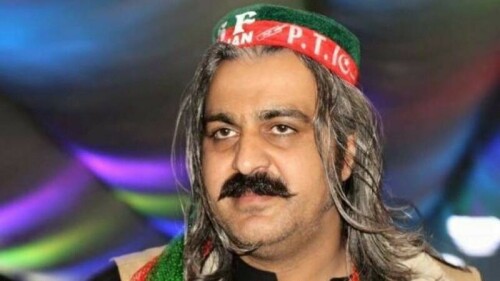PESHAWAR: Pakistan is a signatory to the Convention on Elimination of Discrimination against Women in politics and public life but its women are underrepresented in the electoral process, said an assessment of the Democracy Reporting International shared with a gathering here on Monday.
The Assessment of Local Election 2015, the findings and recommendations about different aspects monitored and assessed against Pakistan’s international commitments, said participation of women in elections and related activities was much less than men’s.
According to it, since indirectly elected on reserved seats, women were not encouraged by political parties to contest for open seats and nominated for reserved seats and therefore, there was very little percentage of women elected on general seats in the 2015 local government election in all four provinces.
“In Punjab, there were only 0.003 per cent of women who got elected on general seat. In Khyber Pakhtunkhwa not a single woman won a general seat,” said Hannah Roberts of DRI.
Study says parties don’t encourage women to contest direct polls
She said women not only remained restricted to reserved seats but they could also not become nazim or naib nazims, who got elected directly by winning more votes.
The DRI representative said women also faced discrimination when stereotype symbols like heels, lipstick etc were assigned to them as election symbols.
She said women polling stations and booths were manipulated and were in the worst conditions especially in rural areas and that in some constituencies, women were barred from voting.
“The data of KP elections showed a 27.9 per cent turnout for women compared to 50.1 per cent turnout for men. There’s a lack of gender-segregated information and groups broadly representing women do not appear to be have been consulted in the development of Acts, rules and practices,” Hanah Roberts said, adding that information was also not available on the number of women, who won seats.
Other aspects like participation of minority and vulnerable groups scrutiny of election process through observers, election dispute resolution or complaints, delimitation process, voter registration, candidate nomination, campaigns, election day, results were also discussed and recommendations were given by the participants for improvement of the election process so that best practices could be adopted in the General election in 2018.
DRI, which is a non-partisan, independent organisation registered in Germany working for promotion for political participation of citizens and accountability of state bodies during the one-day consultation held in Peshawar concluded with a set of recommendations.
The recommendations included amendments in the legal framework and delimitation demanding that Election Commission of Pakistan should hold fresh delimitations with involvement of the public in a transparent manner.
The DRI also recommended that after holding consultations, ECP take responsibility of management and accountability of the work of ROs; legal regulation be undertaken by ECP and Nadra in production and maintenance of electoral rolls, and laws be amended to include objective and non-restrictive criteria for running as candidate.
It recommended that areas with signs of no or limited women’s voting be investigated to identify and address ban on women’s participation and that a review of the system of reserved seats of non-Muslims be done.
The DRI, after monitoring the local government elections in four provinces, said after meaningful consultations, local government laws should be amended in good time to legislate for all aspects of the electoral process, including the system of indirect election on reserved seats.
“The legal framework for local elections should be consolidated and made available online,” said a recommendation.
Published in Dawn, March 29th, 2016












































Dear visitor, the comments section is undergoing an overhaul and will return soon.